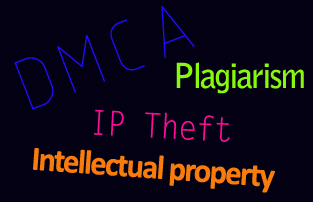 As the internet has grown, the amount of content that we can easily-access with an internet connection has grown astronomically. Words, pictures, video, and other data are hosted on the web by millions of individuals, organizations, and companies. But how much of this data can we actually use? What are the limits on acquiring, reproducing, and sharing data on the net?
As the internet has grown, the amount of content that we can easily-access with an internet connection has grown astronomically. Words, pictures, video, and other data are hosted on the web by millions of individuals, organizations, and companies. But how much of this data can we actually use? What are the limits on acquiring, reproducing, and sharing data on the net?
To understand what we are allowed/not allowed to use on the internet, we have to first understand what protections are in place for the intellectual property of others. There are a few major types of intellectual property we need to know about.
1. Trade Secrets are processes or ideas that companies take a reasonable effort to keep confidential. Since these products are by their nature a secret, you will probably not have access to them, so we’ll move on.
2. Patents are protections of “utility” or “design” innovations that a company keeps exclusive rights to making and using. These protections are usually concerned with manufacturing, so you are unlikely to accidently infringe on anyone here.
3. Copyrights are protections of “creative expression fixed in a tangible medium,” which primarily applies to books, music, and movies. These media protections are primarily the ones that you have to worry about whenever you consider uploading, downloading, or sharing any media that isn’t yours.
4. Trademarks are words or symbols that represent a company—logos. A trademark protects a company’s logo from being stolen or approximated by other companies, so that consumers may be confident that a good or service is really coming from the source they think it is. Trademark protection means that we need to be careful about reproducing company’s logos in any way. If you want to post a picture on your home page, for example, you might not want to have a Coke bottle taking up half of the frame, because it could constitute unauthorized reproduction of the logo. That’s why they have to blur out or cover up the labels on drinks in reality TV shows.
5. Trade Names and the Right of Publicity basically protect company’s and public figures from libel, or people sullying their good name. This doesn’t mean that you’re not allowed to mention Coke or Jesse Ventura, but it does mean that you should avoid saying unfounded and hurtful things like “Coke is composed of 80% kerosene” or “Jesse Ventura puts babies on spikes.” So if you don’t have proof, don’t accuse someone of wrong-doing.
For a review of these types of intellectual property, you can check out: http://whatsupinip.com/2011/05/20/a-brief-lesson-about-intellectual-property/
Due largely to the effects of the internet, all types of intellectual property theft are becoming more common. File-sharing programs like Napster have made music and movie piracy a rampant phenomenon. In colleges and universities, the incidence of plagiarism and academic dishonesty (forms of IP theft) has been steadily rising. Legal disputes over band names are becoming increasingly common. Both corporations and individual celebrities are also taking more seriously the regulation of their brand, and taking more legal action against people that use their names, logos, or photos without permission. One Study estimates that 70% of the world’s intellectual property is currently in the US, but that the country is indirectly losing $150 Billion a year due intellectual property crime. Naturally US companies are becoming more concerned with keeping their intellectual property secure.
So here are some general guidelines to avoid committing intellectual property theft:
1. Don’t take credit for anything you didn’t create. Whenever you use something created by someone else, cite that source. If you echo what other people have said, write it out in your own words and never copy/paste the text directly.
2. Avoid reproducing copyrighted materials. Things like brand names, logos, and copyrighted images are best avoided, even if you plan to cite the source. There is plenty of open content on the web that can usually serve you without having to risk incurring the wrath of a large corporation.
3. If you get media from somewhere that is not the official source and that you did not pay for, it is probably illegal. Just because file sharing and youtube are so prevalent does not mean they are totally in the clear yet. Don’t put yourself at risk by disseminating any media that you don’t have the rights to.
4. If you are unsure whether you can use something or not, consult the experts. Most of us are not lawyers and do not understand the subtleties of Intellectual Property Law. When in doubt about the legality of your actions, it is always best to check with a law firm specializing in trademark infringement.
